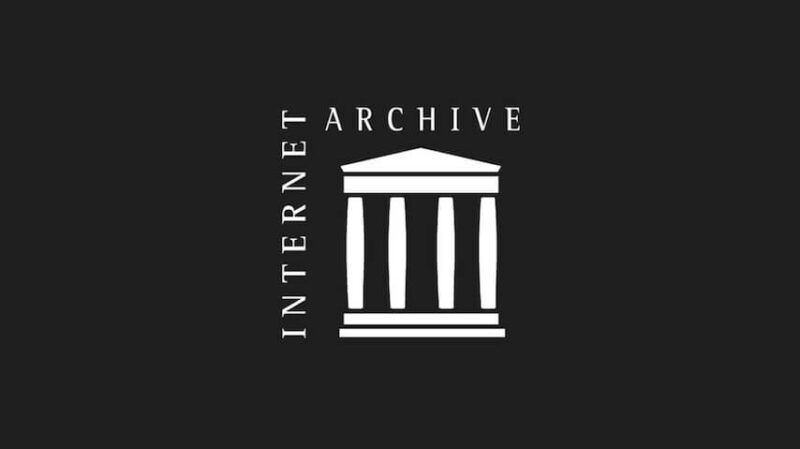
The Internet Archive lost their latest appeal. Here's what that means for you.
As Publishers Weekly reported this week, the Internet Archive, nonprofit home to a robust digital library, has lost its latest appeal in a case brought by publishers. A panel from New York’s Second Circuit “has unanimously affirmed a March 2023 lower court decision finding the Internet Archive’s program to scan and lend print library books is copyright infringement.”
The publishers in question are all big-wigs you know, organized by the Association of American Publishers.
Founded in 1996—which makes it nearly as old as the internet itself—the Internet Archive (IA) is one part researcher’s paradise and another part nostalgist hub. 1.5 million people visit the site every day.
Its creator, Brewster Kahle, dreamed of providing “Universal Access to All Knowledge” for a general public. The site’s popular Wayback Machine safeguards years of now-defunct web sites, and the archive itself is home to millions of web pages, audio recordings, videos, images, software programs, and…books.
For many years, IA operated an Open Library, which included scanned books that readers could “check out” online.
In 2020 during the peak days of the pandemic, IA released those books in a “National Emergency Library,” lifting checks on the amount of materials users could check out at a given times. Though this move was allegedly designed to support teachers and scholars in need of resources, it made many writers angry. And that attracted the ire of their publishers.
*
The rumblings of litigation began in 2020, just a few months after the Emergency Library launched. Nonplussed publishers, including John Wiley, Hachette, HarperCollins and Penguin Random House, condemned the term-less lending program as tantamount to book theft.
In response, IA cited extenuating (pandy) circumstances. Creators noted the library’s librariness (i.e., digital lending system), and the fact that no profit was being made. Ipso facto, fair use. Public benefit.
But IA lost their case.
The writing community itself was and remains split on the public benefit point. At the time the Emergency Library was announced, high profile writers like Jill Lepore of The New Yorker voiced support for the archive and its mission. But at the same time, many authors you know and love came out against the unrestricted loaning of their books.
That split seemed to follow genre lines.
Academic authors, like many of those standing with the Authors Alliance, were quick to support IA. While literary writers—who are more beholden to sales, usually—stayed mad. Some in the latter camp have recanted their support over the past two years/since publishers won their bid. Crucially, during those years it became apparent that writers could petition to have their works removed from the library. (Which was a short-term measure to begin with.)
Also germane: there is still no hard data available on the impact the library program had or might have for authors, sales-wise. Especially given the fact that while the program was running, book sales were surging.
Which all just goes to show that case is a hard one to get around. The stakes are abstract and existential. Should the publishers hold the keys to the copy machine, or can a library get a by?
*
So what happens now?
After yesterday’s news, IA’s only path to appeal is the Supreme Court. And in the meantime, the non-profit faces more litigation. Another suit has been filed by major record labels over its “Great 78” program,” which makes vintage records available to the public. As copyright law is intricately medium-specific in this country, things could play out differently at that rodeo. But the drain on IA’s resources will likely be huge.
As Nitish Pahwa and Emma Wallenbrock wrote in an excellent piece for Slate two years ago, the end of the Archive itself—as opposed to the book-centric lending library, on which this appeal and its originating case rests—would be a huge blow to archivists and readers of all kinds.
Many note that IA is the only keeper of the internet’s first days, via the Wayback Machine. It also houses “many older books and media [that] have never been digitized because the copyright hasn’t expired.” The archive is a huge source for Wikipedia citations, and makes a stand against publisher monopolies. Most of all? If it’s destroyed, millions and millions of cultural items could be lost to history.
And if the music industry is any kind of bellwether, the Open Use ethos of “the techno-optimistic, quasi-libertarian” creators that “governed the web’s early years” (to borrow Pahwa and Wallenbrock’s language) may be doomed, fullstop.
Many on FKA-Twitter are noting the irony that a digital library’s fate should be sealed even as many prominent media companies’ make deals with the devil (i.e., AI). It stands to reason. After all, what kind of literary ethics emerges when your publisher can sell your work to train robots, but refuses to let those same materials be lent out to an independent researcher?
All this said, there’s no need to storm any castle just yet. The Internet Archive itself likely isn’t going away anytime soon. Yesterday’s ruling simply seals a lid on the book lending program. Unless, Lord-willing-and-the-creek-don’t-rise, several members of the high court are visited by three ghosts in the night.
500,000+ titles have been removed from the Internet Archive.
Brittany Allen
Brittany K. Allen is a writer and actor living in Brooklyn.



















